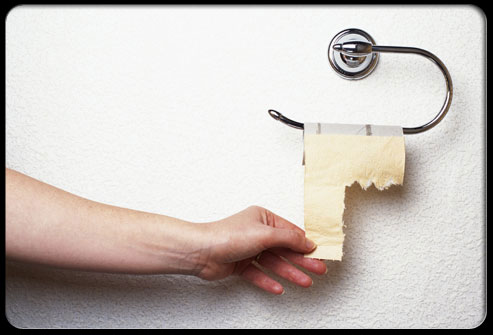
Many people who try to help the environment purchase toilet paper made from recycled material – but what they don’t know is that most recycled TP contains Bisphenol-A (BPA).
According to Town Center Wellness:

BYPASS THE CENSORS
Sign up to get unfiltered news delivered straight to your inbox.
You can unsubscribe any time. By subscribing you agree to our Terms of Use
Latest Video
What is BPA?
BPA is a chemical that disrupts the endocrine system and actually mimics the female hormone estrogen. It may be responsible for an increase in fertility problems and endometriosis among adult females. More concerning is the fact that BPA exposure is linked to noticeable neurological, behavioral and even prostate gland changes in fetuses and young children.
BPA is a toxic compound that is found in most plastics. In the U.S. many states are working to ban BPA in baby products — baby bottles, toys, pacifiers, and other items that babies put in their mouths. Additionally, these BPA containing plastics can be used to store food (even some cans are lined with it). Water bottles, zip lock bags, plastic utensils, and more contain this estrogen mimicking chemical. Oh yeah, that recycled toilet paper you just bought may also contain BPA.
Recycled toilet paper: Not as friendly as you think?
It turns out that credit card receipts and other items that use thermal printing paper are ultimately used in making recycled toilet paper. Unfortunately, most brands of thermal printing paper contain BPA. While BPA isn’t an ingredient directly used to make recycled toilet paper, the process that creates this environmentally friendlier paper product creates a completely new toxicity concern: BPA in wastewater streams.
What happens to toilet paper? It gets flushed. The wastewater ends up at a municipal water treatment plant. When toilet paper contains BPA, it is also processed at the local plant, but unfortunately, some of this BPA finds its way into both surface and groundwater supplies.
So, why is this a concern? The xenoestrogens in BPA have been linked to a number of cancers and hormonal abnormalities. Water treatment facilities do not remove BPA. That means that you are left with having to filter your own water.


